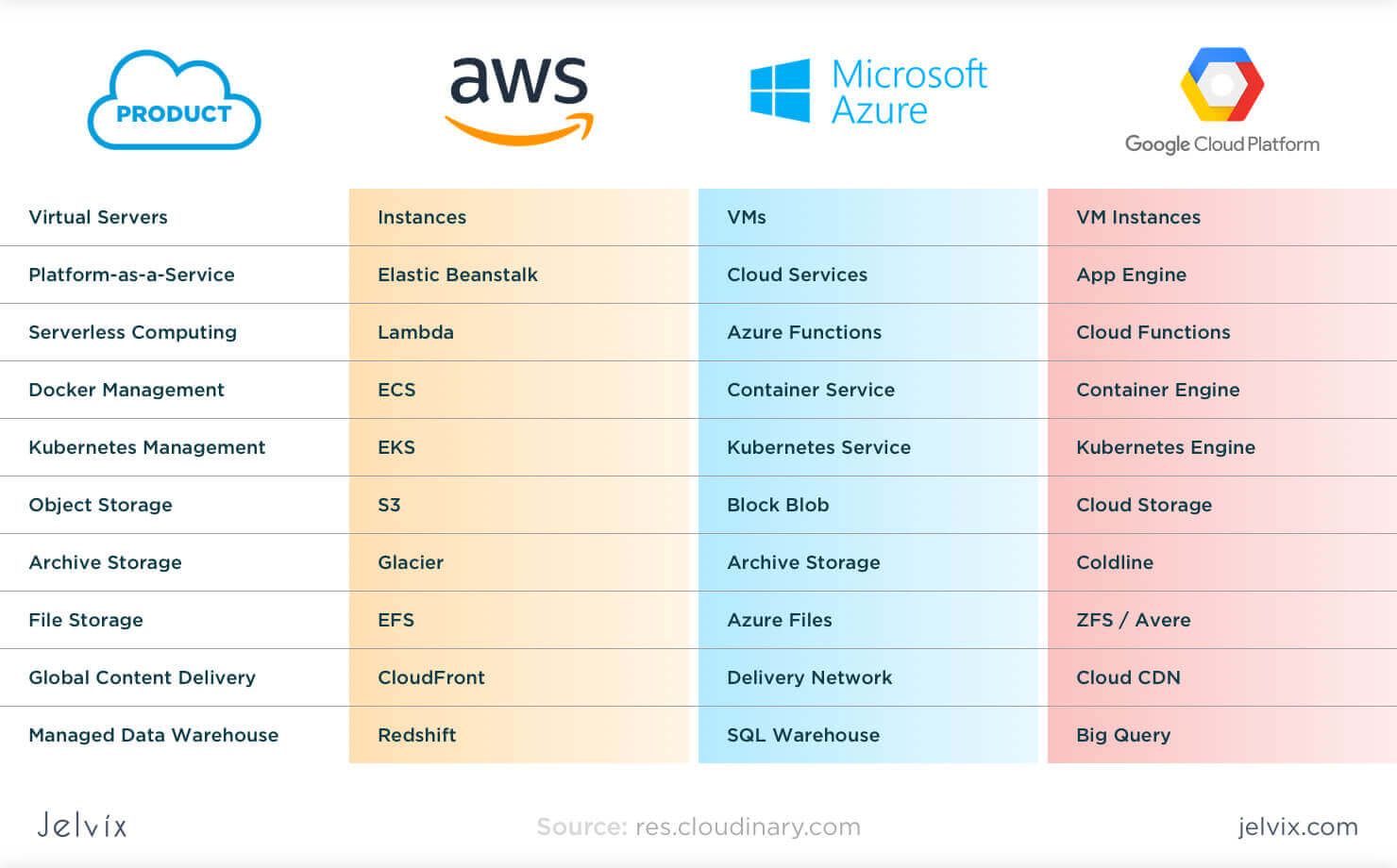
Cloud computing has dramatically transformed the tech industry, revolutionizing the way businesses operate and store data. Among the top players in this space are Amazon Web Services (AWS), Microsoft Azure, and Google Cloud. As a tech-savvy entrepreneur or IT professional, understanding the essentials of these cloud platforms is crucial to make informed decisions and leverage their full potential. In this article, we will explore the key features and benefits of AWS, Azure, and Google Cloud, allowing you to determine which solution best suits your unique business needs.
Amazon Web Services (AWS)
As the leading cloud platform provider, Amazon Web Services (AWS) offers a comprehensive suite of cloud computing services that empower businesses to build, deploy, and scale applications with agility and efficiency. With AWS, you gain access to a vast array of services, including computing power, storage, databases, machine learning, analytics, and more.
One of the standout features of AWS is its scalability. Whether your business is a small startup or a multinational enterprise, AWS allows you to scale your infrastructure instantly, adjusting resources as necessary and avoiding unnecessary costs. Moreover, AWS offers a robust security framework, ensuring your data is encrypted, protected, and compliant with industry standards.
A key advantage of AWS is its wide range of service offerings, such as Lambda for serverless computing, S3 for object storage, and RDS for managed relational databases. AWS also provides industry-specific solutions, including AWS for healthcare and AWS for financial services, enabling businesses to meet their specific requirements.
Microsoft Azure
Microsoft Azure, a close competitor to AWS, offers a comprehensive suite of cloud services designed to support businesses of all sizes. Azure provides a seamless integration with Microsoft’s vast ecosystem, making it an attractive choice for organizations already utilizing Microsoft technologies. Azure’s portfolio includes compute power, storage, networking, databases, AI, and IoT services.
One of Azure’s notable strengths lies in its hybrid cloud capabilities. Azure seamlessly integrates with on-premises infrastructure, allowing businesses to leverage their existing investments and migrate to the cloud at their own pace. Additionally, Azure’s global footprint ensures worldwide availability, with data centers strategically located around the globe.
Azure places a strong emphasis on compliance and security, ensuring your data is safeguarded and adheres to industry-specific regulations. Azure also offers advanced analytics and data services, allowing businesses to gain valuable insights and drive data-driven decision-making.
Google Cloud
Google Cloud, powered by Google’s robust infrastructure, offers a competitive suite of cloud solutions designed to drive innovation and accelerate business growth. Google Cloud’s portfolio spans from compute and storage to artificial intelligence and machine learning services.
One of the standout features of Google Cloud is its ability to leverage Google’s vast machine learning capabilities. Google Cloud’s AI services, such as AutoML and TensorFlow, enable businesses to build smart applications and leverage predictive analytics. Additionally, Google Cloud’s BigQuery offers powerful analytics capabilities, allowing businesses to analyze large datasets in real-time.
With Google Cloud, businesses can benefit from Google’s extensive network infrastructure, ensuring low latency and high reliability. Google Cloud’s global network of data centers provides high availability and robust disaster recovery capabilities.
Choosing the Right Cloud Solution
Choosing the right cloud platform for your business requires careful consideration of your specific needs and requirements. AWS, Azure, and Google Cloud all offer strong features and capabilities, but some factors to consider include:
Cost – Each cloud provider offers different pricing models, and it’s important to assess your budget and choose the most cost-effective option.
Services – Evaluate which cloud provider offers the services that align with your business needs, whether it’s artificial intelligence, big data analytics, or industry-specific solutions.
Integration – Consider your current tech stack and evaluate how well the cloud provider integrates with your existing systems and applications.
Support – Assess the level of support and documentation provided by the cloud provider, as well as the community support available.
In conclusion, AWS, Azure, and Google Cloud are all major players in the cloud computing space, each with its own strengths and offerings. Understanding the essentials of these platforms allows you to make an informed decision and leverage the power of cloud computing to drive innovation and scale your business. Whether you choose AWS, Azure, or Google Cloud, you are embarking on an exciting journey that will unlock limitless possibilities for your organization.

